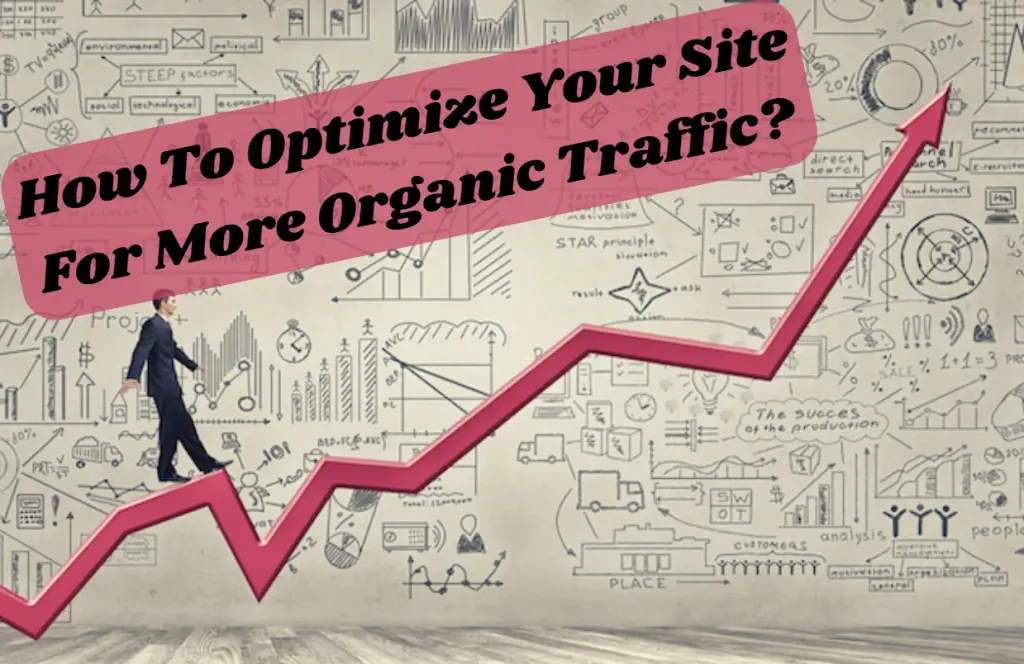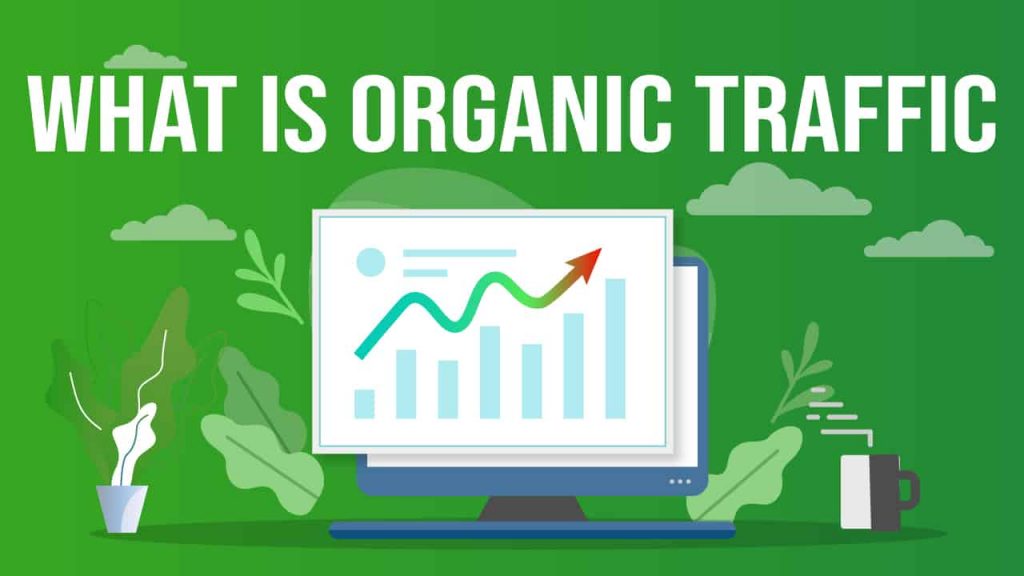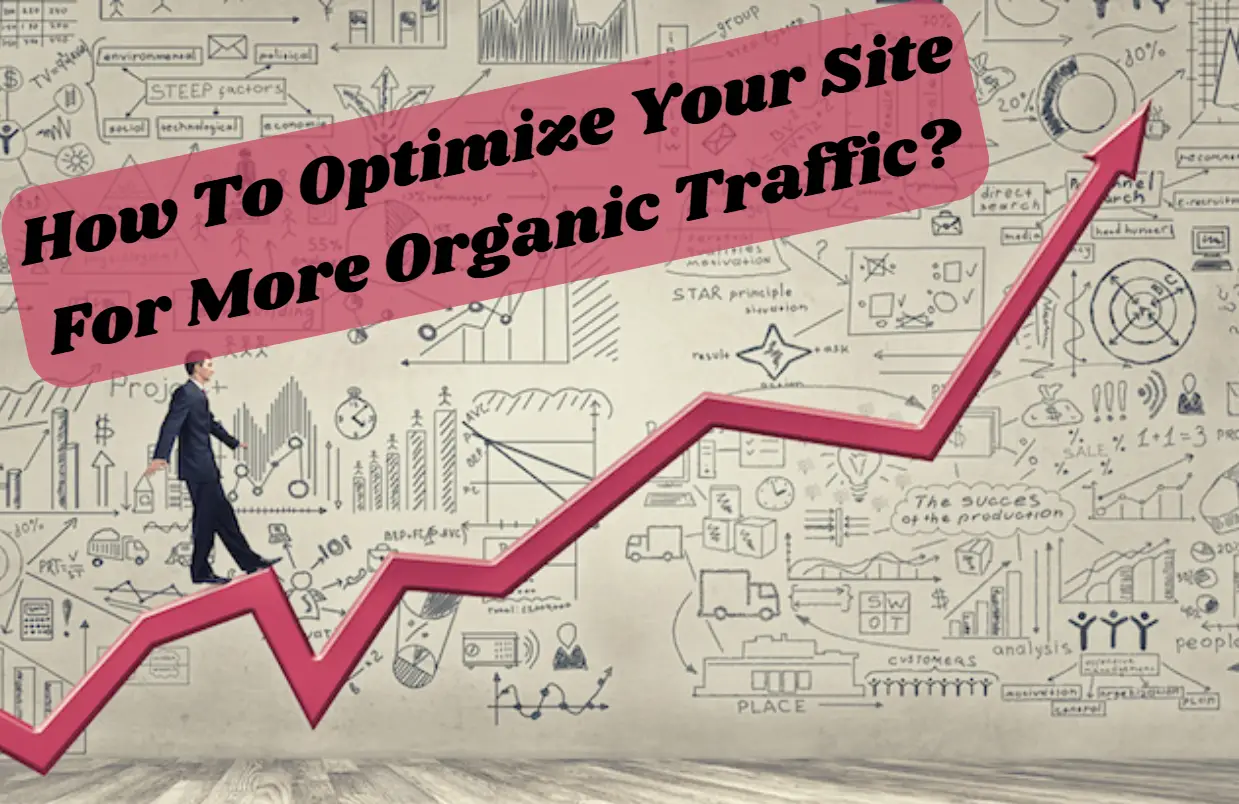If you have a website, you probably want people to find it via organic traffic. Without traffic, a website has no use. If no one is aware that your company exists, it doesn’t matter how great your product or service is. As a result, optimizing your website for organic traffic is critical.
A well-designed website may generate leads. The website’s rating and exposure must be upgraded to create leads. Improved rankings and visibility aid in increasing visitors to the website. The more people that visit, the more likely it is that some of them will become paying customers.
To boost website visibility, it must be built by search engine rules. Suppose the website is created and developed by search engine criteria. In that case, it will surely attract search engine bots, also known as spiders, and these will increase exposure and ranking.
This piece will cover some of the best methods and tactics for increasing organic traffic to your website or blog.

What Is Organic Traffic?
Organic traffic refers to the number of people that visit a website after learning about it from a search engine rather than typing the URL into the address bar.
People find your site when they type a topic into a search engine like Google, and your site appears in the results.
When someone visits your website without you having to pay them to do so (organic traffic), it doesn’t matter what method they used to get there (paid ads, social media, or plain old-fashioned SEO).
Now that we’ve defined organic traffic let’s look at its advantages and how to enhance it. After all, if you’re operating a website, you’re looking for as much as possible!

Benefits Of Organic Traffic To Your Website:
For digital marketing, one of your primary aims should be to increase organic traffic to your website. Why? Because organic traffic is the most cost-effective and efficient strategy to grow your company.
Here are the top five benefits of organic traffic:
1. Cost-Effective:
Unlike sponsored advertisements, which may rapidly become pricey, organic traffic is free. Just put in the time and effort to produce material of high quality, and people will flock to your site. Your organic traffic will expand tremendously over time as your site grows and attracts more users.
2. Targeted:
When individuals search for anything on Google, they typically have a particular goal in mind. It implies that if your website appears in their search results, you’ve already qualified them as a possible consumer or client. They are intrigued by what you have to offer!
3. Long-Term:
Paid advertising may temporarily increase traffic, but your traffic will drop if you stop paying for them. Organic traffic, on the other hand, is long-lasting and environmentally friendly. Once you’ve worked hard to attract visitors to your site, they’ll keep returning as long as you continue to provide them with helpful content.
4. Credible:
Individuals are bombarded with marketing at every step in today’s digital world. As a consequence, we’ve become rather adept at ignoring them. When we encounter something organically, such as an article on our Facebook feed, we’re more likely to pay attention since we know a business or brand didn’t pay for it. It is more reliable and trustworthy.
5. Boosts Other Marketing Efforts:
A solid organic presence may supplement and strengthen other marketing initiatives, such as email marketing and social media marketing. If someone looks for your business on Google and loves what they see, they are more likely to subscribe to your email list or follow you on social media.
Since it is the most cost- and time-effective method of expanding your brand, organic traffic should be one of your top digital marketing focuses.
You may attract focused, long-term, credible, and cost-effective visitors by spending time and effort developing high-quality content, which will increase other marketing initiatives like email marketing and social media marketing.
Ways To Improve Your Website’s Organic Traffic:
Optimize For Your Readers, Not Search Engines:
First and foremost, create buyer personas so you know who your content is aimed towards. You will automatically increase your SEO by providing great instructional content connecting with prospective consumers.
It entails focusing on your personas’ core concerns and the terms they employ in search queries. Optimizing only for search engines is pointless; all you’ll get is keyword-riddled gibberish.
Please use your buyer personas, and the search engines will follow suit.

Blog Regularly:
Begin by developing a blog if you want to improve organic search traffic. Blogging is advantageous to your company since it allows you to contact your target audience, attract organic traffic to your site, and increase the credibility and authority of your site.
When you blog, you share helpful information with your audience. They locate your site and read your content when they search for this information using the appropriate keyword you’ve chosen.
It allows you to drive more leads to your website by providing the information they want. Blogging necessitates the frequent publication of the material. Still, it also allows you to increase organic traffic to your website continuously.
Use Long-Tail Keywords:
You should use More than just the most popular keywords in your industry. Always use more precise keywords for your product or service.
Over time, Google and other search engines will recognize your website or blog as a destination for that particular topic, boosting your content in search results and assisting your target consumers in finding you. It is how you establish yourself as a thought leader on the subject.
Get Your Meta Down:
The meta title, URL, and description are the three most essential components of a well-optimized web page or blog post. It’s simple yet effective. Although all on-page SEO variables are crucial, meta descriptions and metadata allow you to tell Google precisely what you’re talking about.
To optimize our sites, we employ various tools, including the Yoast SEO plugin for WordPress, HubSpot’s SEO tools, and Ahrefs. But you need more than just installing a plugin; you must work on each page individually.
Consistently Create Quality Content:
Attempt to write and post as often as possible, but not at the expense of quality! The more quality material you have on your website or blog, including thought leadership articles and blog posts, the more possibilities you create for organic traffic to come your way.
Use Internal Links:
Once you’ve collected a substantial library of information, you may link to it in blogs and on your website, directing readers to other related stuff. It may keep people on your website for extended periods, which benefits your search rankings.
However, don’t abuse internal links; too many will seem spammy.
Encourage Incoming Links:
Google prioritizes sites with a high number of incoming connections, particularly those from reliable sources. Encourage customers, friends, family members, partners, suppliers, industry experts, and fellow help bloggers to link to your website.
As the number of backlinks to your site grows, so does its perceived authority in the eyes of search engines, ultimately leading to a better page rank.
Use Social Media:
Create a presence on social networking sites such as LinkedIn, Twitter, Instagram, and Facebook. All of these actions contribute to the spread of your name and website URL on the internet. Concentrate on one or two platforms and perfect your approach. Do more than repeat yourself four times.
Make it simple for users to share your material by including social share buttons on your website and emails. And, of course, provide material that is worth sharing.
Monitor Your Analytics:
Use Google Analytics to measure visits to your website and blog. Knowing where they are coming from and what keywords they are searching for helps you to fine-tune your content.
Finally, to improve organic site traffic, you must provide your clients with what they desire: great advice, knowledge, and insight.

Conclusion:
Because organic traffic is the lifeblood of many websites, especially those without the funding for paid advertising, it’s critical to grasp what it is and how to increase it.
You can boost organic traffic to your website by frequently producing high-quality content and optimizing your site for mobile devices. You may also broaden your reach by utilizing social media networks strategically!



One Comment